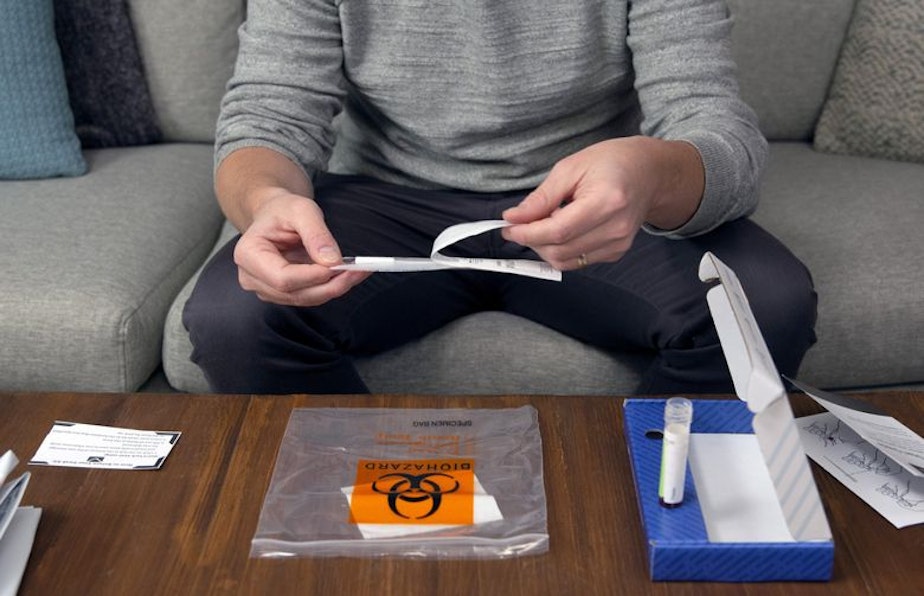At-home Covid test, check. Adequate telehealth response, not yet

We're now in year three of the pandemic, and at-home testing has only recently become available on a large scale.
The federal government and Washington state are distributing free tests, and someday, a box of rapid tests may be as common as a bottle of aspirin in your home.
Dr. Helen Chu is an infectious-disease specialist with the University of Washington School of Medicine. She told KUOW’s Kim Malcolm that, beyond delivering quick results, at-home tests can play a pivotal role in fighting the pandemic. They talked about her vision for at-home testing, and how it’s making an impact right now.
This interview has been edited for clarity.
Dr. Helen Chu: I think it will be really important for people to be able to use these tests to give them peace of mind as they return to school and to work. For example, being able to have a test result returned to you within 15 minutes, that tells you that you're not infectious, will change our ability to function in society.
Before, it used to take up to five to seven days for a PCR result to come back. It was really hard to live your life or to make decisions about what to do based on something that you wouldn't be able to confirm for up to a week. I think that will really change.
Kim Malcolm: Besides making these home testing kits more available and cheaper, you've been advocating for a way to capture that information. Why?
Right now, the way that we capture information about test results, including Covid tests, is through laboratories that report those results to public health. That way, the public health system is able to make decisions about hospital capacity and planning for surges.
Sponsored
Once we make a shift to home testing, we will lose the ability to capture the information through laboratories. We won't be able to make decisions as quickly, about when to staff up the hospitals or when to prepare for an oncoming surge. If we could develop a system where the home test results are able to be captured in a systematic way, that will really help the public health system be able to continue to respond to these waves as they arrive.
Beyond capturing the data that comes from more testing, what else would you like to see as we continue to fight this pandemic?
One of the things that we have now in our arsenal is the ability to treat Covid. And we know that the treatments that we give are best when you get them very early in your symptomatic period. One of the ways we can use these home tests to diagnose people early is to link the test results to telehealth, to trigger a delivery of antivirals or antibodies to your household for treatment.
I see this as something that will probably happen in the future, not right now. The supplies of tests as well as the supplies of treatments are quite limited now. But I do see, in subsequent years — as Covid becomes an endemic illness — that we will head toward a time when it will be fairly routine to test yourself for flu or Covid at home, then be able to take action based on the results with a telehealth provider.
Listen to the interview by clicking the play button above.





